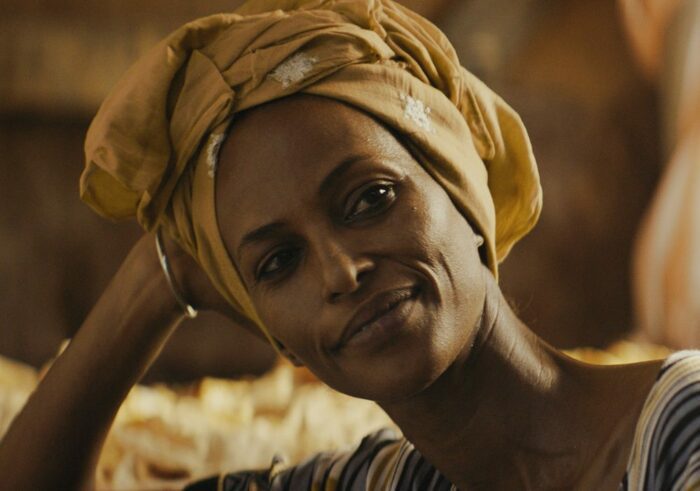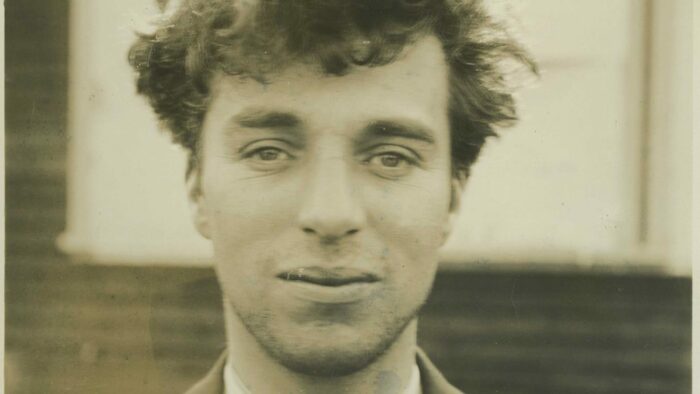This piece is part of a series reviewing the films screened as part of the 2021 BFI London Film Festival, previous entries in this series are available on the site.
The Gravedigger’s Wife

If you’ve never seen a Djibouti film, then you might be forgiven. Letterboxd lists just nine Djibouti productions, the most popular of which has been viewed by only 310 members. Soon to be screened at more festivals globally, and already selected as Somalia’s first ever submission for the Best International Feature Oscar, The Gravedigger’s Wife is likely destined to become the most celebrated Djibouti film in history.
National cinemas don’t grow up overnight, and The Gravedigger’s Wife is the product of an international effort, with Finnish producers and a Canadian star, model and actor Yasmin Warsame, in the title role. She is Nasra, living in poverty but contented in her life as wife to hardworking Guled (Omar Abdi) and mother to a young boy Mahad (Kadar Abdoul-Aziz Ibrahim). Tragedy strikes their family though when Nasra collapses, significantly, at a wedding, revealing a potentially fatal kidney infection requiring immediate and expensive treatment they cannot afford.
Caught between his love for his wife and his inescapable poverty, as well as a draconian system that withholds lifesaving medical care unless payment is extracted, under which poverty is a death sentence, Guled resorts to desperate action to save his wife’s life. The surgery costs $5,000, but to Nasra and Guled, it may as well be $5,000,000 for all the hopes they have of paying it. Guled resigns himself to a long march across rough terrain in the hopes that his estranged family might be able to help him raise the money, while Mahad does his part to start saving.
From this excruciating scenario, the film generates a heartbreaking portrait of romantic devotion. It’s a poignant and fraught drama built around a very strong lead performance from Abdi. Like the film, he manages to mix humour and humane warmth into the tale, recognising that the tragedy of the scenario comes from the love the characters share, and that’s every bit as important to show as their sacrifices to keep it alive. The ending may be somewhat incredible, but it’s a surprisingly welcome turn into the warm and uplifting aspirational or instructive scenario that our lovers deserve. After an ordeal of bitter truths, a concluding dash of escapism is hard to shy away from, ending on a really beautiful and uncertain final note.
The Real Charlie Chaplin

One of the most strange and original documentaries I can remember seeing is James Spinney and Pete Middleton’s ethereal 2016 work Notes On Blindness, following a theologian as his degenerative loss of sight changed his life. The duo utilised a technique that returns here, playing audio of their real subjects and having actors lip sync to the voices, creating re-constructions that are otherworldly and dreamlike. It’s a beautiful technique that faultlessly underlines the uncanny intangibility of a past receding ever further away from us. The technique returns here, and provides a sufficient dose of authorial weirdness to enliven what is in all other respects, a far more orthodox documentary than Notes On Blindness.
Charlie Chaplin certainly seems an obvious choice for documentary, he lived an eventful and significant life, yet there’s much about him that’s still unknown and disputed. He was a controversial figure in his time and his memory is one that still inspires a lot of ambivalence, which this compliment sandwich of a movie does go into, rather non-committally it must be said. Chaplin does seem a strange choice for a film-making duo of such etheral aesthetics as Middleton and Spinney though.
They bring their stamp to the film, investing it with eeriness, curiosity and occasional wit, taking audio recordings of Chaplin and Effie Wisdom, his childhood friend and having actors (Jeff Rawle and Anne Rosenfeld) recreate the moment of recording. The voice we hear the most of though is not Chaplin’s but Pearl Mackie, the film’s narrator, whose refined, inquiring voice is a reassuring guide through Chaplin’s life and artistry. The film takes a familiar chronological approach, starting with Chaplin’s stage debut at 15 as one of Fred Carno’s Mumming Birds. He comes to the American stage to make his fortune and is lucky enough to find himself in pictures, improvising his tramp character when he needed a distinct persona of his own. From there the film follows his rise to fame, his growing artistic ambition and his eventual decline, falling victim to his own worst instincts and the worst elements of America.
The footage of Chaplin and his films are of course very entertaining, and the snappy editing and wry, romantic voice-over gives them a practiced reverence and affection. The film explores the development of the Chaplin character, his populist appeal, later activism and ultimate exile under the jackboot of the FBI and HUAC’s anti-communist sentiment and tabloid scrutiny, becoming a favourite target of right wing gossip pundit Hedda Hopper. However, the real in the title is not employed lightly, and it must be said, as righteous as his political aspirations and as brilliant as his artistry was, his downfall was in no small part, a reckoning. Long term, his reputation is worse off for his predatory behaviour than his political beliefs.

With multiple teenage brides, each of whom he treated abominably, there’s another side to Chaplin the film presents candidly. However, the film doesn’t seem any more able to reconcile Chaplin’s genius, his martyrdom and his predations than any of us. It doesn’t harbour any great revelations about Chaplin, and he emerges as a troubled and troubling figure about whom the film is ultimately unsure whether he deserves our sympathy. It seems to want to celebrate his work and treat him as a martyr to censorship, but can’t quite commit to a conclusion, instead letting the women in Chaplin’s life speak for it. Perhaps that’s the most appropriate course.




